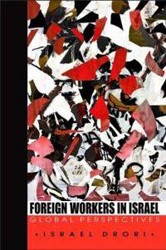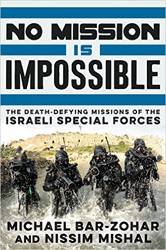The labor-movement founders of the State of Israel envisioned a secular country that would liberate its people not only from colonial rule, but also from a passivity those leaders attributed to religion. They expected religious practice in the Hebrew state to dwindle to insignificance within a generation or two.
It didn’t work out that way: today 30 percent of Israel’s Jews are religious, many of them fervently so, and the Rabbinate wields considerable state power.
Michael Walzer, author of Exodus and Revolution and an eminent scholar of political theory, sees parallels between Israel and the national liberation movements in 1961 Algeria and India of 1947. Those revolutions also were aggressively secular, yet they, too, have had to contend with the resurgence of religious extremism: Algeria has seen the advance of Islam, and India today is governed by a right-wing Hindu nationalist party.
Drawing on Marxist analysis, Walzer finds a great class difference between the leaders of those national liberation movements and the people they governed. Algeria’s revolutionaries were steeped in the ideas of European thinkers, including Marx and Lenin; Jawaharlal Nehru, educated at Harrow and Cambridge, once described himself as “the last Englishman to rule in India.” They imported an alien framework in the hope of radical transformation.
Two of Israel’s early progenitors, Chaim Weizmann and Theodore Herzl, were European intellectuals. In contrast to their counterparts in Algeria and India, however, they did not impose themselves on a very different mass population living in a traditional culture. On the contrary, the Yishuv, the pre-independence Jewish population of Palestine, was made up largely of European Zionists like themselves — one way in which Walzer’s comparison falters.
Walzer’s portrayal of a secular Zionism also ignores religious Zionists like the Mizrahi movement, which was allied with Herzl and represented at the Third Zionist Congress. Also unmentioned is Rav Avraham Yitzchak Hacohen Kook, the first Ashkenazi chief rabbi of Palestine, who developed a highly influential philosophy of religious Zionism in the 1920s and 1930s. These were not extrinsic fundamentalist movements like the ones in Algeria and India; they were part of the original drive for a Jewish state. Israel, in the end, doesn’t fit the model Walzer proposes.
Michael Walzer still believes in the project of national liberation, and per Marx, the rise of the religious fundamentalism seems explicable to him only as counterrevolution. He seems to find it inconceivable that large populations would prefer a traditional life for religious reasons, rather than as class protest. His ideas about India and Algeria are provocative, but they fail to explain the secular-religious dynamic in Israel.
Related Content:
Bob Goldfarb is President Emeritus of Jewish Creativity International.





